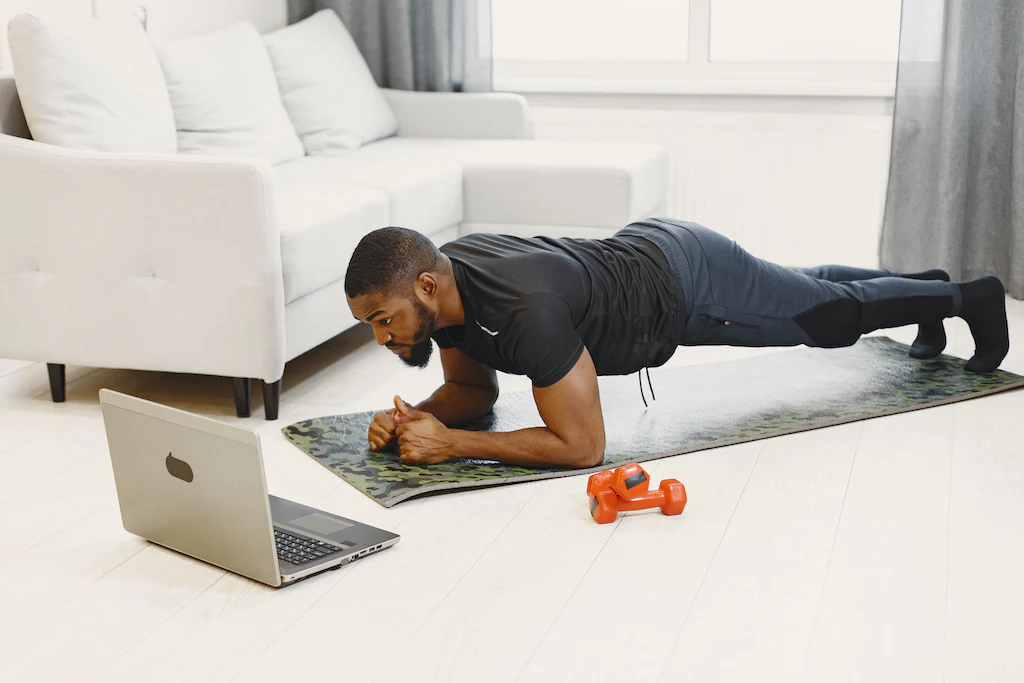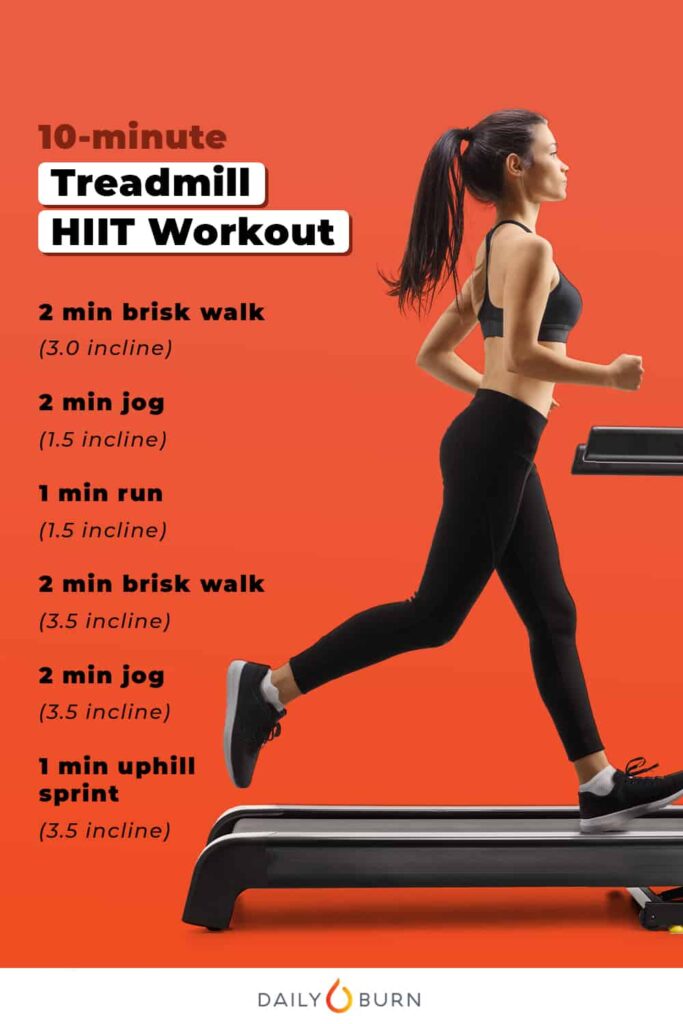Can 10 Minutes Really Transform Your Body?
In today’s fast-paced world, finding time to exercise can be challenging. Enter the 10-minute HIIT workout—a brief, high-energy burst of exercise promising results once thought possible only with hour-long gym sessions. But can such a short workout actually deliver meaningful fitness gains?
In this blog post, we explore the science behind short HIIT workouts, what research says about their effectiveness, who can benefit, and how to structure your own 10-minute HIIT session to maximize results.
What is HIIT?
HIIT stands for High-Intensity Interval Training. It involves short bursts of intense activity followed by brief recovery periods.
Example:
30 seconds of jump squats
15 seconds of rest
Repeat with different exercises for 10 minutes
The key is intensity—pushing your body close to its maximum effort for short periods.
Why the 10-Minute Format is Trending
There’s a growing shift toward “exercise snacks”—short, intense workouts that fit into tight schedules. These mini sessions are designed to:
Boost metabolism quickly
Improve cardiovascular health
Burn fat effectively
Fit into lunch breaks or busy mornings
YouTube, Instagram, and fitness apps are filled with “10-minute abs,” “10-minute fat burn,” and “10-minute HIIT” videos. But are these backed by science?
What Science Says About Short HIIT Workouts

Several peer-reviewed studies support the effectiveness of short-duration HIIT:
1. Comparable to Longer Workouts
A 2016 study in PLOS ONE found that 1 minute of intense effort in a 10-minute workout produced similar fitness improvements as 45 minutes of moderate cycling over 12 weeks.
“A few intense minutes can offer many of the same benefits as much longer workouts.” — Dr. Martin Gibala, McMaster University
2. Improves VO2 Max and Heart Health
VO2 max (your body’s oxygen efficiency) is a major predictor of cardiovascular health. A 2021 meta-analysis showed that even low-volume HIIT improved VO2 max significantly in both trained and untrained individuals.
3. Aids in Fat Loss
Short HIIT sessions increase EPOC (Excess Post-exercise Oxygen Consumption), meaning your body burns calories long after the workout. This leads to greater fat loss over time, even compared to longer moderate sessions.
Why HIIT Works in 10 Minutes
Here’s what makes short HIIT workouts so powerful:
| Mechanism | Explanation |
|---|---|
| Intensity | Your heart rate hits 80–95% of max, simulating a much longer workout |
| Afterburn Effect | You burn calories for 24–48 hours due to metabolic elevation |
| Hormonal Boost | Increases adrenaline, growth hormone, and endorphins |
| Muscle Activation | Compound moves like burpees, jump squats, and mountain climbers engage multiple muscle groups |
Benefits of 10-Minute HIIT Workouts
1. Time Efficiency
Ideal for busy professionals, parents, students, or anyone who can’t commit to a full workout session.
2. Fat Burning and Muscle Toning
Helps reduce body fat while retaining lean muscle.
3. Improved Heart Health
Boosts circulation and lowers blood pressure in just weeks.
4. Improved Insulin Sensitivity
Especially beneficial for those with prediabetes or metabolic issues.
5. Boosts Mental Health
Short workouts improve mood, reduce anxiety, and boost brain function.
Who Can Benefit From 10-Minute HIIT?

Beginners: Can start with modified low-impact versions
Busy professionals: Quick session before work or lunch
Weight loss seekers: Short yet effective calorie burn
Older adults: With doctor’s approval, modified HIIT improves heart and bone health
Postpartum women: Gradual return to fitness with safe modifications
Is 10-Minute HIIT for Everyone?
While effective, HIIT isn’t suitable for all without precautions.
Considerations:
People with heart conditions or joint issues should consult a doctor.
Beginners should start slow, focusing on form rather than speed.
Intensity should be increased gradually to avoid injury.
Sample 10-Minute HIIT Workout (No Equipment)
Warm-up (1 minute):
Jumping jacks (30 sec)
Arm circles and light jog (30 sec)
Workout (8 minutes, Repeat 2x):
| Exercise | Duration | Rest |
|---|---|---|
| High knees | 30 sec | 15 sec |
| Push-ups | 30 sec | 15 sec |
| Jump squats | 30 sec | 15 sec |
| Plank jacks | 30 sec | 15 sec |
Cooldown (1 minute):
Forward fold, shoulder rolls, deep breathing
🔁 Modify intensity by adjusting rest periods (10–30 sec).
How Often Should You Do 10-Minute HIIT?

Beginners: 2–3 times a week with rest days
Intermediate/Advanced: 4–5 sessions weekly, mix with strength training
Recovery: Allow rest or low-intensity cardio between intense days
Tips to Maximize Results
Focus on form over speed to avoid injury.
Track progress with heart rate monitors or fitness apps.
Stay hydrated and stretch before and after workouts.
Combine with healthy nutrition for best results.
Increase intensity gradually as your fitness improves.
Myth Buster: Is 10 Minutes Enough to Build Muscle?
While HIIT can help tone muscles, true muscle growth (hypertrophy) generally requires resistance training with progressive overload. However, HIIT maintains muscle mass and improves strength endurance.
For those short on time, adding resistance bands or light dumbbells to HIIT can help build lean muscle effectively.
HIIT vs Other Short Workouts
| Type | Calories Burned (10 mins) | Strength Gains | Fat Burn |
|---|---|---|---|
| HIIT | 80–120 | Moderate | High |
| Yoga | 30–50 | Low | Low |
| Steady-state cardio | 50–70 | Low | Moderate |
| Bodyweight circuit | 60–100 | Moderate | Moderate |
HIIT wins when it comes to overall efficiency, but variety is key to long-term success.
Real People, Real Results
Thousands are experiencing results from short HIIT:
“I lost 5 kg in 3 months just doing 10-minute HIIT and walking.” — Rina, 34
“I have more energy in the morning now than I did with 45-minute gym workouts.” — Suresh, 42
“Short HIIT sessions help manage my anxiety and stress.” — Maya, 28
Conclusion: Quality Over Quantity
The science is clear: 10-minute HIIT workouts are enough—if done with intensity, consistency, and proper form. While they may not replace all aspects of a full fitness routine, they can drastically improve health, burn fat, and boost endurance.
So next time you think “I don’t have time,” remember—10 minutes might be all you need.
Related posts:
 The Science Behind Food Cravings and How To Manage Them
The Science Behind Food Cravings and How To Manage Them
 Unraveling The Truth: Behind the Partition of India in 1947
Unraveling The Truth: Behind the Partition of India in 1947
 The Spiritual Significance and Story Behind Jyeshtha Mangal
The Spiritual Significance and Story Behind Jyeshtha Mangal
 Can Science and Religion Coexist in the 21st Century?
Can Science and Religion Coexist in the 21st Century?
 Unlocking the Secrets of Sleep: How Sleep Physiology Shapes Brain Function
Unlocking the Secrets of Sleep: How Sleep Physiology Shapes Brain Function
 How Stress Affects Digestion – Gut Health & Mental Wellness Connection
How Stress Affects Digestion – Gut Health & Mental Wellness Connection
